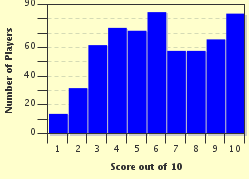Quiz Answer Key and Fun Facts
1. Which international relations theory holds that states are unitary, rational actors driven to maximize their power and utility in an anarchic world, and that the nature of states comes from human nature?
2. On a cold February morning, President Woodrow Wilson declares "states' internal values and norms should determine their foreign policy and the pattern of their international relations." Which theory of international relations does this statement support?
3. If someone (possibly while wearing a red shirt with a black silhouetted face) declared "State interests are an extension of class interests and relations between states are driven by the exploitation of weaker states by stronger states," what theoretical perspective would they be espousing?
4. You read in a pamphlet that "States are pluralistic actors seeking to maximize absolute gains under anarchy, however, 'complex interdependence' can diminish anarchy, and the state is the primary focus of analysis." Which international relations theory is this pamphlet articulating?
5. Which international relations theory holds that state interests are neither inherent nor unproblematic and that international norms have an independent power to shape state interests and affect state behavior?
6. Say you are watching a speech at the World Bank, and the Bolivian representative states that "Poorer, less developed states are prevented from achieving full development by the structure of the international system." Which theory did he just articulate?
7. During a break from fighting crime, Dove, an obscure superhero, declares that "States are pluralistic actors seeking to maximize absolute gains in a world where international trade reduces the potential for conflict. Non-state actors merit legitimate analysis." Which theory of international relations did he define?.
8. A disheveled vagrant is standing on a street corner wearing a sign with the statement "States are unitary, rational actors driven to maximize their power and utility in an anarchic world. State behavior is determined by the structure of the international system," painted on it. Which theory is his sign advocating?
9. In response to the contention that former colonies are incapable of independent self-government, a professor declares that "All knowledge is situated in representations. As a result the possible scope of state action is defined by the discursive environment in which it is situated." Upon which theory is this professor's argument founded?
10. An official at the World Bank declares that "Less developed states will achieve development through the adoption of the cultural norms and organizational patterns of industrialized states." Which international relations theory did she explicate?
Source: Author
Portobello
This quiz was reviewed by FunTrivia editor
agony before going online.
Any errors found in FunTrivia content are routinely corrected through our feedback system.


